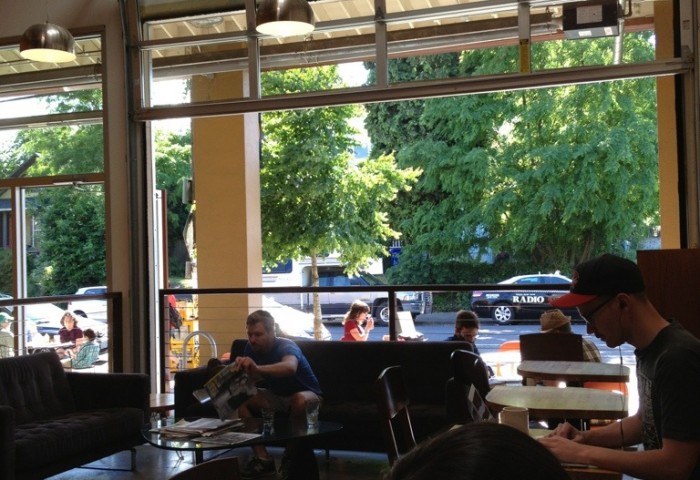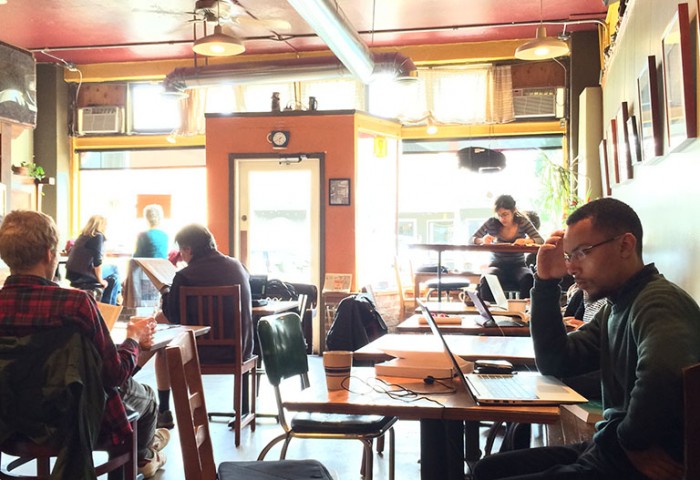The majority of my career has been spent working remotely. My longest stint in an office, outside of being a visiting contractor, was four months.
And, oh my, was working in an office an immensely jarring experience.
While a lot of articles on remote work tend to focus on the negatives of not being in an office, I want to focus on the positives—and how damn lucky most of us are that we have the opportunity to do so.
Remote Workers are Inherently Trusted
While I am sure there are exceptions to this, every remote job I have taken came with a lot of trust. I am willing to bet the same goes for the majority of other remote workers.
I think that we’re trusted simply because there is no other option. I may very well be sleeping until noon every day. I am probably checking Twitter and Facebook far too often. Hell, sometimes, I’ll wait for messages by playing Destiny (PS4 Username: Callmetreebeard. Add me.)
But that doesn’t really matter, as long as I get my work done in a timely manner or by the deadline set by my boss.
Remote Workers Have Incentive to Be Efficient
There are a lot of daily tasks that workers do in an office that could be heavily optimized, but just aren’t. Why?
Because there’s little incentive to do so. Let’s say an office employee figures out a way to do a mundane task in 1 hour instead of 3 hours. While that is all well and dandy, that office worker still needs to fill 40 hours of time. Or look like they are doing forty hours.
Office workers are often measured by how hard it looks like they’re working. Mottos like “Work Smart, Not Hard” are only paid lip service in a lot of office environments, broadly speaking. (I do know of one office environment where this is not the case, and I am sure there are others.)
I believe that remote workers can be more efficient (and write numerous blog posts about being efficient) because they don’t have the visual mark that comes with it. Since remote employers can’t physically see the hour you save, they are more inclined to appreciate your efficient habits.
Remote Workers Get to Have Their Time
When you are in an office, you are on the company’s time, excluding breaks. Concepts such as “time theft” have never been brought up to me by a remote employer, but they have been mentioned in office environments (even when I was only a contractor).
While you are still technically on the company’s time as a remote employee, it is certainly a bit more difficult for a remote manager to lecture you on how often you chat with coworkers (and hopefully, you’re keeping the random chats reasonable).
But more importantly, you don’t have to be in one spot to do work. For instance, when I worked full-time in an office, it was frowned upon to work in other locations of the office other than my desk. And it was most certainly not an option to work at the coffee shop down the road. After all, why was my boss paying for office space if I wasn’t going to use it and they couldn’t keep tabs on me?
Remote Workers are Harder to Micro-Manage
When employees are only a cubicle away from you, it can get really easy to micro-manage them. With remote employees, this just isn’t as easy to do.
Many remote employees work in a variety of timezones. And remote employees tend to have a bit of an independent streak in them, and that is assumed based on the nature of being a remote employee. In short, remote employers don’t have the physical presence necessary to look over their employee’s shoulders.
Remote Workers are Harder to Snoop On
While some remote employers provide their employees with computers, many remote employers let their employees use their own systems. Because of this, installing keyloggers, time tracking software, and website blockers on a remote employees computer becomes a much more cumbersome—and obvious—method of surveillance.
Remote Workers Can Control Interruptions
A big criticism of working remotely is the tendency for distraction from dogs, children, family members, significant others, and friends. While this is true in some cases, I have found it to be a weak argument.
In an office, especially one with an open office design, distractions are constant. It’s sometimes not enough to put headphones in your ear to signal a need to be left alone and focus. Since office workers are on the company’s time in a very visual way, the time needed for an employee to deep focus in an office environment is lower priority. Random conversations and pokes in the shoulder take precedence over the work you are currently doing—especially if it is your boss.
Remote workers have some semblance of control over distractions. We can free range. Shut ourselves in a corner. Get a coworking membership. Shut down messaging apps (with proper notice, of course). Blare the music in our ears without pissing off our cubicle mate.
While remote working isn’t distraction-proof, there is a lot more personal freedom given to remote employees to attempt to control or mitigate distractions.
In general, remote employees are given a lot more leeway and freedom than the typical employee. While there are some negatives to the lifestyle, namely loneliness, there are way more positives. And we should focus on those.



Responses